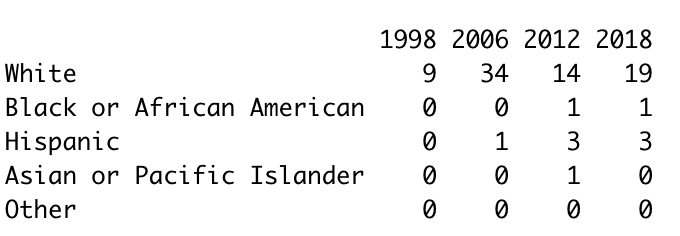-
•
•
6 responses
Last week we learned how everything is made of spirit; that it is the substance of creation. This is critical to different spiritual languages because there are so many different manifestations of spirit. In fact, if the Book of Abraham is to be believed, everything we see is a manifestation of spirit, and they each have their own kind of language. Faith fits into this in a very particular way. We are creators. That’s what this whole life thing is about: the creation of creators. Being a creator is written into our DNA, and we are always creating, even without… Read More
-
•
•
46 responses
BYU’s recent policy changes that appear to be geared towards reinforcing the institution’s Latter-day Saint character are causing consternation in some circles, so I thought now would be a good time to be the bad guy and make a case for why proactive faculty boundary maintenance is needed for an institution like BYU to fulfill its mission. Like a lot of other people, I get the sense that recent changes are bellwethers for future shifts to come, so this will probably be a relevant topic for the next little while. First, a common response is that a religiously sponsored institution… Read More
-
•
•
9 responses
Continuing my hypothetical series about what I would do if I were asked to update the Doctrine and Covenants (and still keeping in mind that I have no plans to actually do so and I’m 110% sure the Church doesn’t have any plans for me to do so either), we come to looking at editing documents currently included in the Doctrine and Covenants. In the last couple decades, we’ve had an explosion of research into and availability of the root documents behind the Doctrine and Covenants in the form of the Joseph Smith Papers Project. This provides us with the… Read More
-
•
•
One response
Elisa Eastwood Pulido’s biography, The Spiritual Evolution of Margarito Bautista (Oxford University Press, 2020), provides a fascinating glimpse into one of the more significant but controversial figures in the history of The Church of Jesus Christ of Latter-day Saints in Mexico. An important founding figure among Mexican Latter-day Saints, Bautista was a successful missionary who helped to spread the Church of Jesus Christ of Latter-day Saints among Mexicans and Mexican-Americans in Mexico, Arizona, and Utah; the father of family history efforts among Mexican Latter-day Saints; the most prolific indigenous author of Mormon literature to date; and a ceaseless advocate of empowering Mexican… Read More
-
•
•
4 responses
“The entire law is fulfilled in keeping this one command: ‘Love your neighbor as yourself.’…The fruit of the Spirit is love, joy, peace, forbearance, kindness, goodness, faithfulness, gentleness and self-control.” Galatians 5: 14, 22-23 Section 93 of the Doctrine and Covenants is, in my opinion (which is correct), one of the most radical, beautiful works of theology ever written. While I could happily do a whole series about it, there is one particular part of it I want to draw upon for the sake of this series. The revelation in Section 93 starts with describing the nature of Christ,… Read More
-
•
•
6 responses
Free will is one of those issues where you have to think deep and hard about your definitions. Many philosophers will subscribe to one definition, but not another, so sometimes the whole debate on whether we have “free will” revolves around semantics that you can’t do justice to in a single post, so I won’t try. However, it is fairly clear that Latter-day Saint theology not only makes space for (at least some version of) free will (except we refer to it as “agency” in our vernacular), but puts it at the cornerstone of our teleology. Scientifically, the most famous… Read More
-
•
•
15 responses
I told you I wasn’t done with the Doctrine and Covenants yet. Follow me, and ponder the question: What if? It’s the year 2023 and the Church of Jesus Christ of Latter-day Saints has decided to produce a new edition of their scriptures. For reasons that are unclear, the project was picked up by the most unlikely creature imaginable: Chad Nielsen, of Times and Seasons. Challenged to produce a new edition of the Doctrine and Covenants, Chad goes to work, planning out what he will do. Now, in reality, I know full well that the Church doesn’t care about… Read More
-
•
•
5 responses
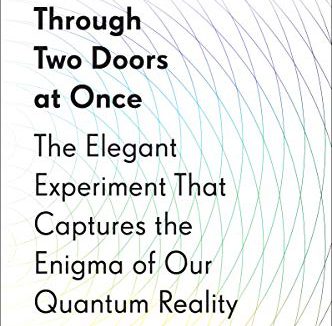
I recently finished an excellent book providing a pop-science level understanding of the experiments surrounding the bizarre fact that very small objects are neither particles nor waves, or they’re both, or, you know, something. Read More
-
•
•
10 responses
I remember when I was a little kid and began to learn that there were different languages. I loved that primary song where you learn how to say “thank you” in languages from all over the world. It felt so cool, like learning some kind of secret code. But even as I learned these words I still assumed that when people heard them they were having the exact same experience that I was. For example, I heard the word “hola”, but in my mind it was immediately translated as “hello”. To me “hola” didn’t exist as its own word with… Read More
-
•
•
7 responses

“When I despair, I remember that all through history the way of truth and love have always won. There have been tyrants and murderers, and for a time, they can seem invincible, but in the end, they always fall. Think of it–always.” Mahatma Gandhi Glory to Ukraine. Read More
-
•
•
58 responses
You would think that at some point we would learn from past experiences with priesthood bans. Concerning the priesthood and temple ban against people with black African ancestry, President Dallin H. Oaks noted that: Some people put reasons to the one we’re talking about here, and they turned out to be spectacularly wrong. There is a lesson in that. … I’m referring to reasons given by general authorities and reasons elaborated upon … by others. The whole set of reasons seemed to me to be unnecessary risk taking. … Let’s don’t make the mistake that’s been made in the past,… Read More
-
•
•
13 responses
When I was a Wikipedia editor years ago the Joseph Smith page stated that “[Smith] began teaching that God was…embodied within time and space,” and they cited Busman’s statement to that effect. I removed the “embodied in time” and explained that this is arguable, citing Alma’s statement that “time only is measured unto men.” (As I was writing this I re-checked the page, and it’s back up, oh well). So is God in and beholden to the flow of time? Church historians and theologians undoubtedly have a more informed take on this than I, but in terms of the science… Read More
-
•
•
11 responses
A pattern I’ve noticed in political and sometimes religious discourse lately is the concept of “good anger.” This isn’t the calm and measured, but firm response of Christ before the Romans or at the temple, but a deep antipathy with bite to it. The acidity of this anger is not considered a weakness, but is intentional; a feature, not a bug, justified because of the injustice that motivates the anger. My interest here is with the justification for the hate. In the same sense that there is a major difference between weaknesses of the flesh and open rebellion against God,… Read More
-
•
•
11 responses
The more I examine the universe and the details of its architecture, the more evidence I find that the universe in some sense must have known we were coming.-Freeman Dyson As noted in a previous post, fine tuning is a problem that has received mainstream acceptability within the scientific community. To summarize, for complex matter like stars and carbon to exist (which, by extension, is required for us to exist), matter needs to have characteristics that are just right. If the difference between the masses of this and that particle or the strength of this and that force were slightly… Read More
-
•
•
3 responses
Recently, Kurt Manwaring let me know that there was an issue of BYU Studies that had recently come out that I feel like will be a very impactful issue moving forwards. The issue–also published as a book entitled Yet to be Revealed–focuses on unanswered questions in Latter-day Saint theology and brings an impressive array of big names in the Latter-day Saint studies field as authors of the discussions. It covers topics like defining doctrine, how did Satan seek to destroy the agency of humankind?, How does God progress?, Was Jesus married?, the foreknowledge of God, and much more. More recently, however, Kurt… Read More
-
•
•
34 responses
With the recent hullabaloo about Brad Wilcox’s firesides, I have had a few things on my mind, perhaps most intensely around the priesthood and temple ban against individuals of black African ancestry. The short version is this: After studying the evidence, I believe that the ban was not instituted and sustained by God’s will. Now, I’m not trying to pick on Brother Wilcox by bringing this up (he did apologize, etc.), but because of the discussion about his fireside, the topic has been on my mind, and I feel like I need to share my perspective. It should be noted… Read More
-
•
•
12 responses
There are a variety of “end of the universe” scenarios that physicists currently see as most likely: Heat Death Because of a mysterious energy in the universe (aptly named “dark energy”), the universe’s expansion is speeding up. As things expand they cool down, so the heat contained in the universe will gradually dissipate until there is no light and no heat, just an immense void of cold darkness. This is the current leader for “most likely way the universe will end.” The Big Rip Dark energy accelerates with time, eventually causing space itself to grow so much that objects grow… Read More
-
•
•
7 responses
“Leadership roulette” (or “bishop roulette”) is a common term thrown around when there is some good or bad outcome that depends on the contingencies of who happens to be your local leader. This particular complaint is often aimed at some perceived authority figure in a bubble at Church Headquarters that is supposedly detached from the complexities of lived experiences of the Saints. Now, “leadership roulette” is real, and I don’t mean to dismiss its occasional relevance, but there are also a lot of complaints about the “one size fits all” solutions, when the two are essentially tradeoffs of one another. Tying a… Read More
-
•
•
13 responses
If the 5-year cycle for Relief Society General Presidencies that has been followed for 20 years holds true, the current Relief Society Presidency is likely to be released at this upcoming general conference. With that in mind, I recently decided to go through and read all of the general conference talks given by members of the current presidency. It was a depressingly short exercise, especially given the quality of materials presented. These talks proved to be very meaningful to me, and after reviewing them, I wish that the full Relief Society General Presidency had been allowed to speak at every… Read More
-
•
•
32 responses
Over at BCC, John S. has a post that is, overall, not very helpful. Read More
-
•
•
54 responses
The American philosopher Richard Rorty recollected that when he was a teenager he dreamed of being able to read all the great works in his local library and arrive at some grand synthesis of truth from all the wisdom contained therein (for all truth to be circumscribed into one great whole, as it were). and later in his career he (arguably) became something of an apostate from philosophy as he increasingly challenged its ability to do what it claimed to be able to do. At the risk of being presumptuous, as an undergraduate I fell in love with Rorty in… Read More
-
•
•
4 responses
Population genetics is an exciting, cutting edge area of research. In the past we had a fairly simplistic picture of our deep history, with humans migrating out of Africa and then sequentially expanding from continent to continent. However, occasional findings of very early human remains, combined with the genetics revolution, paints a completely different picture of turbulent demographic back-and-forths with extinctions, conquests, deportations, and uprooted wanderings. Since writing came on the scene relatively late, most (chronologically speaking) of our history as a species is written down not on paper, but literally in our blood, whether it’s the history of mass… Read More
-
•
•
18 responses
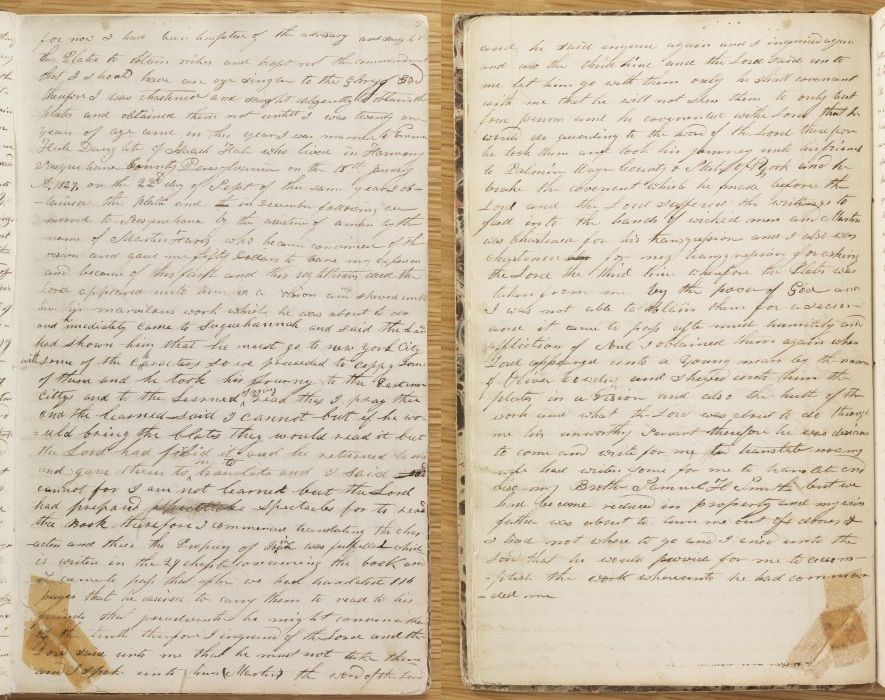
I’ve always had the idea running in the back of my mind to compile a list of the most important documents across the history of the Church of Jesus Christ of Latter-day Saints that are not in the scriptures nor book-length publications. Documents in the list include important summaries of doctrine that capture the thought of an era, documents that outlined and solidified an approach to policy or doctrine in the Church, or which signaled some significant changes. I’m going to take a stab at it here, though no doubt it will fall far short of the goal. Still, I’ll… Read More
-
•
•
33 responses
I’ve noticed a not-insignificant number of members, both orthodox and heterodox, assume that the Church’s position on human sexuality is a “just because the prophet said so” issue, and aren’t aware of any well thought out defenses of the Church’s (or conservative religion’s in general) position written by non-church leaders, so I’ve gone ahead and thrown together a collection of pieces that speak to the subject that I’m posting here. I’m intending for these sources to speak primarily to theological issues; I recognize that legal same-sex marriage is a whole other can of worms, and that the political arguments vis-a-vis… Read More
-
•
•
9 responses
Quantum mechanics makes absolutely no sense. Basically, small particles act differently depending on whether they are being watched, either by a conscious human being or a detector machine (even if the detector is turned on after it has acted). I’m not going to rehash how we know, but the more details you get the more mind blowing it is (Brian Greene’s book The Elegant Universe has the best easy read description of said details). More and more refined experiments continue to close possible loopholes, so it looks like the crazy is true (despite, among other people, Albert Einstein spending the last… Read More
-
•
•
5 responses
Kerry Muhlstein’s Let’s Talk about the Book of Abraham Is the latest entry in a series that Deseret Book has been publishing to address controversial or touchy topics in the Church. Based on my experience with Brittany Chapman Nash’s Let’s Talk About Polygamy (the previous volume in this series of books), I had expected something like the Very Short Introduction series by Oxford University Press, with a scholarly discussion of the topic. Muhlstein’s work does indeed follow this pattern, presenting a concise, readable, and informative in discussing the Book of Abraham. Unlike the Very Short Introduction series, though, it is… Read More
-
•
•
65 responses
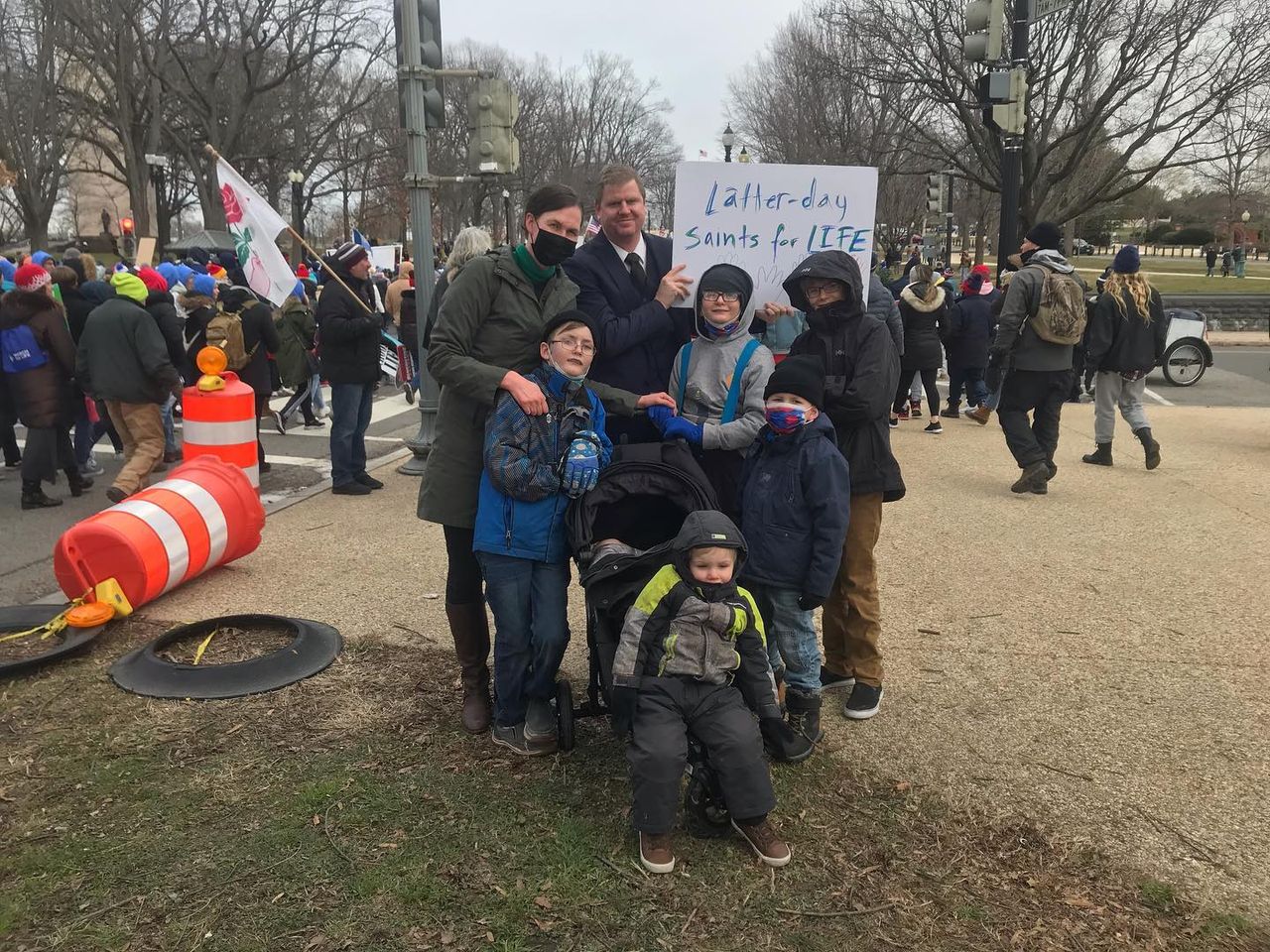
My family and I recently participated in the March for Life, the big annual pro-life march in DC, so I’ve been thinking about a variety of things related to that (in no particular order). To what extent should you use your religious affiliation as an adjective for your political identity (or vice-versa)? On the left there are certainly examples of this (Mormons for Marriage, MWEG, etc.), but what are we trying to say when you do this? My wife didn’t want to create the “Latter-day Saints for Life” poster because she would have marched whether she was religious or not… Read More
-
•
•
29 responses
A well done religious-themed movie can be a powerful spiritual experience. Unfortunately, the movie industry generally either shies away from religious themes (unless to deride them), or they fit in the Christian cinema niche that produces simple starches for the masses. It is hard to find a religious-themed movie that is authentically spiritually touching and has good production value, that’s not sappy but also not cynical. Because of their rarity I’m on a lifelong hunt. I’ve scrounged foreign, domestic, old, and new, and these are the fruits of my labors (in order, so 1= my favorite). If I’ve missed some,… Read More
-
•
•
6 responses
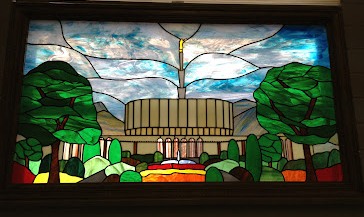
“In the end, the character of a civilization is encased in its structures,” stated Frank Gehry—an important contemporary architect. One of the more interesting episodes in the treatment of historic Utah structures has been the decision to tear both the Ogden and Provo temples down to their frames and rebuild them with completely new façades. Back in 2010, preservationists Steve Cornell and Kirk Huffaker related this structure to the character or nature of the Church of Jesus Christ of Latter-day Saints by stating that: “Architectural preservationists should be up in arms about the planned changes. The Ogden temple with its… Read More

